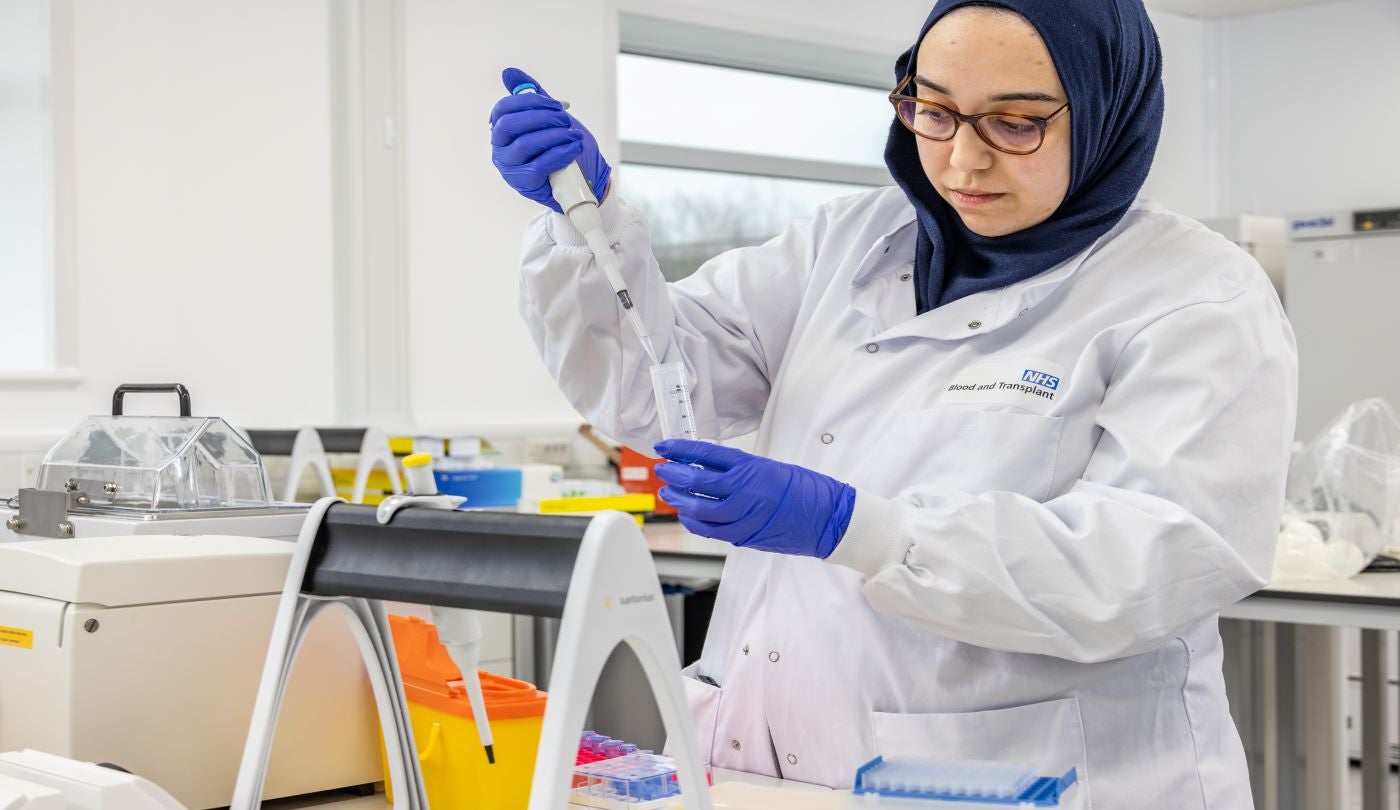New facility boosts UK’s cell and gene therapy manufacturing capacity
10 Mar 2023
Gene TherapyImmunotherapyCell Therapy

Preview
Source: Pharmaceutical Technology
Credit: NHSBT

Preview
Source: Pharmaceutical Technology
On 10 March, the National Health Service Blood and Transplant (NHSBT) opened a new Clinical Biotechnology Centre (CBC) with the aim of improving the UK’s ability to develop and manufacture cell and gene therapies. A £9.3 million ($11 million) grant is being used to build the facility in Bristol where therapies for currently incurable diseases, such as some forms of cancer, sickle cell disease, and cystic fibrosis can be manufactured. Personalised medicines will also be developed at the centre.
In an email to Pharmaceutical Technology, an NHSBT spokesperson said the centre will “support early phase clinical trials and preclinical work, providing a route to eventual commercial scale production”. The representative expected the facility to open more treatment opportunities for UK citizens saying, “It will help give patients quick access to the latest treatments by increasing the number of UK patients with incurable diseases who are able to take part in clinical trials and bring new treatments into the NHS faster.”
This is important due to the UK’s currently limited short-scale manufacturing capacity. The NHSBT representative explained that a lack of manufacturing spaces led to delays in production slots for many gene therapy developers. In the past, researchers have often had to seek help from outside the UK, thus delaying clinical trials and patient access. The NHSBT hopes the CBC will increase the UK’s competitiveness within the market.
The opening of this new facility plays into the UK government’s Life Sciences Industrial Strategy. The strategy, underlines one of the government’s goals of increasing the UK’s manufacturing capacity for DNA-based therapeutics. Operations at the CBC will focus on building plasmids, viral vectors and recombinant proteins for the production of cell and gene therapies.
This facility will join the NHSBT’s five other sites throughout the UK, which provide a combination of stem cell and immunotherapy support services, GMP cell therapy manufacturing services, and advanced therapy medicinal products (ATMP) storage and distribution. The representative said NHSBT plans to continue increasing manufacturing capacity in this way and said, “We are actively pursuing collaborations with external partners.”
In a statement released along with the centre’s launch, Steve Barclay, the UK’s Health and Social Care Secretary said, “The investment in this new centre will continue to develop this area of research and help provide patients the best possible care”. Dr Lilian Hook, NHSBT’s Director of Cell, Apheresis and Gene Therapies affirmed this sentiment saying, “This will enable cutting edge research with the potential to develop cures for some critical diseases which can currently only be treated and often ultimately prove fatal. We’ll be supporting delivery of these curative treatments into the NHS, so patients can access them more quickly”.
Cell & Gene Therapy coverage on Pharmaceutical Technology is supported by Cytiva.
Editorial content is independently produced and follows the highest standards of journalistic integrity. Topic sponsors are not involved in the creation of editorial content.
Free Whitepaper
Optimise your cell therapy process: a guide to cell thawing
Typically carried out at the point of care, errors in cell therapy thawing could compromise treatment efficacy, leading to significant patient impact as well as high costs and a compromised reputation for the product’s developer.
This guide addresses how cell thawing has historically developed into the new techniques used today, along with the physical and biological implications of key metrics and components such as warming rate and ice structure. Also included are reviews of key studies from scientific literature and a consideration of the interactions between cooling and warming rates, as applicable to cell and gene therapies.

Preview
Source: Pharmaceutical Technology
-->
By clicking the Download Free Whitepaper button, you accept the terms and conditions and acknowledge that your data will be used as described in the Cytiva Thematic privacy policy
By downloading this Whitepaper, you acknowledge that we may share your information with our white paper partners/sponsors who may contact you directly with information on their products and services.
Visit our privacy policy for more information about our services, how we may use, process and share your personal data, including information on your rights in respect of your personal data and how you can unsubscribe from future marketing communications. Our services are intended for corporate subscribers and you warrant that the email address submitted is your corporate email address.
For more details,please visit the original website
The content of the article does not represent any opinions of Synapse and its affiliated companies. If there is any copyright infringement or error, please contact us, and we will deal with it within 24 hours.
Indications
Targets
-Drugs
-Hot reports
Get started for free today!
Accelerate Strategic R&D decision making with Synapse, PatSnap’s AI-powered Connected Innovation Intelligence Platform Built for Life Sciences Professionals.
Start your data trial now!
Synapse data is also accessible to external entities via APIs or data packages. Leverages most recent intelligence information, enabling fullest potential.




